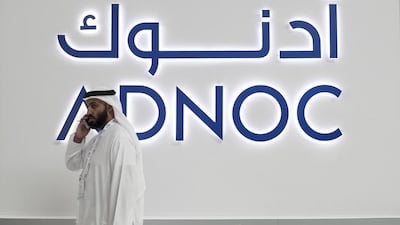A question that has circulated in energy boardrooms for decades is finally being answered. It is a yes – the GCC's national oil companies can effectively spearhead the development and management of the region's oil.
Historically, these companies have leaned heavily on international oil companies’ expertise for the development and management of oil reserves. But the tide is turning. The national oil companies have demonstrated their financial acumen by swiftly and smartly slashing budgets and payrolls – while preserving oil supply and security – in response to the decline in oil prices since mid-2014. Having previously enjoyed bloated balance sheets, these companies are getting used to being on the front line of a cash-strapped battlefield to protect profit margins. Increasingly strict global environmental policies and a soaring energy demand add to the need for change.
The national oil companies must match the commercial acumen long demonstrated by their international counterparts while meeting the social responsibilities that come with playing an integral role in a nation’s identity. Saudi Aramco’s surprise announcement last year of an initial public offering pencilled in for next year is a good example of how national oil companies, unlike international players, must navigate a three-point agenda: one of commercial success; one of social responsibility; and one that supports the nation’s political agenda.
To kick-start the evolution, there have been leadership changes in the national oil companies of Abu Dhabi, Kuwait, Qatar and Saudi Arabia since 2013. The new chief executive of the Abu Dhabi National Oil Company (Adnoc), Sultan Al Jaber, has said the company must operate efficiently in a way that is more akin to an international super major. To facilitate this transition, Adnoc plans to merge the operations of the Abu Dhabi Marine Operating Company and Zakum Development Company into a new company by 2018. Adnoc also intends to combine three of its shipping and ports services units into one.
While national oil companies and international companies have always collaborated, their key performance indicators will forever remain fundamentally different. The Saudi Aramcos and Adnocs of the region manage their assets as part of a long-term energy security strategy. Sustainability is also not just a buzzword for the national oil companies, as illustrated by Qatar’s efforts to preserve the North Field by enforcing a moratorium on additional gas development since 2005.
Collaboration between national oil companies and international companies with historic relationships will strengthen over the coming decade in a bid to bat away other increasingly robust competitors. For the GCC countries the primary rivals are Iran and the United States. The opening of the newly widened Panama Canal in mid-2016 gave a significant boost to the latter’s oil and gas export ambitions to East Asia, for example.
Modern and expanded port facilities are a vital part of the GCC national oil companies’ ability to enhance their global offering. The Port of Fujairah is already one of the world’s largest bunkering hubs, and in the past year it has launched a US$175 million very large crude carrier (VLCC) jetty. There are plans to build a second such jetty and increase petroleum storage capacity by 75 per cent to 14 million cubic metres by 2020.
The release of weekly oil inventory data by the Fujairah Oil Industry Zone has spearheaded market discussions on hosting the region’s first independent pricing benchmark for oil products.
National oil companies still need to up their game to match the technological expertise of the international oil companies. The national companies’ easy access to national oil reserves has meant they have fallen behind international companies, who had to become tech-savvy and think outside the box to maximise potential from more challenging assets. What was once to the national companies’ advantage is now their Achilles heel.
National oil companies do not have long to sharpen their game as population growth is increasing domestic usage. The Middle East’s energy demand is forecast to climb 49 per cent by 2035, according to BP’s Energy Outlook, while the International Energy Agency expects the region’s gas demand to double by 2040.
The region’s national oil companies are rapidly maturing. But the jury is still out on whether their dedication to transforming into canny managers will fade if oil prices rise.
Salem Abdo Khalil is a technical adviser to the Government of Fujairah.
business@thenational.ae
Follow The National's Business section on Twitter

